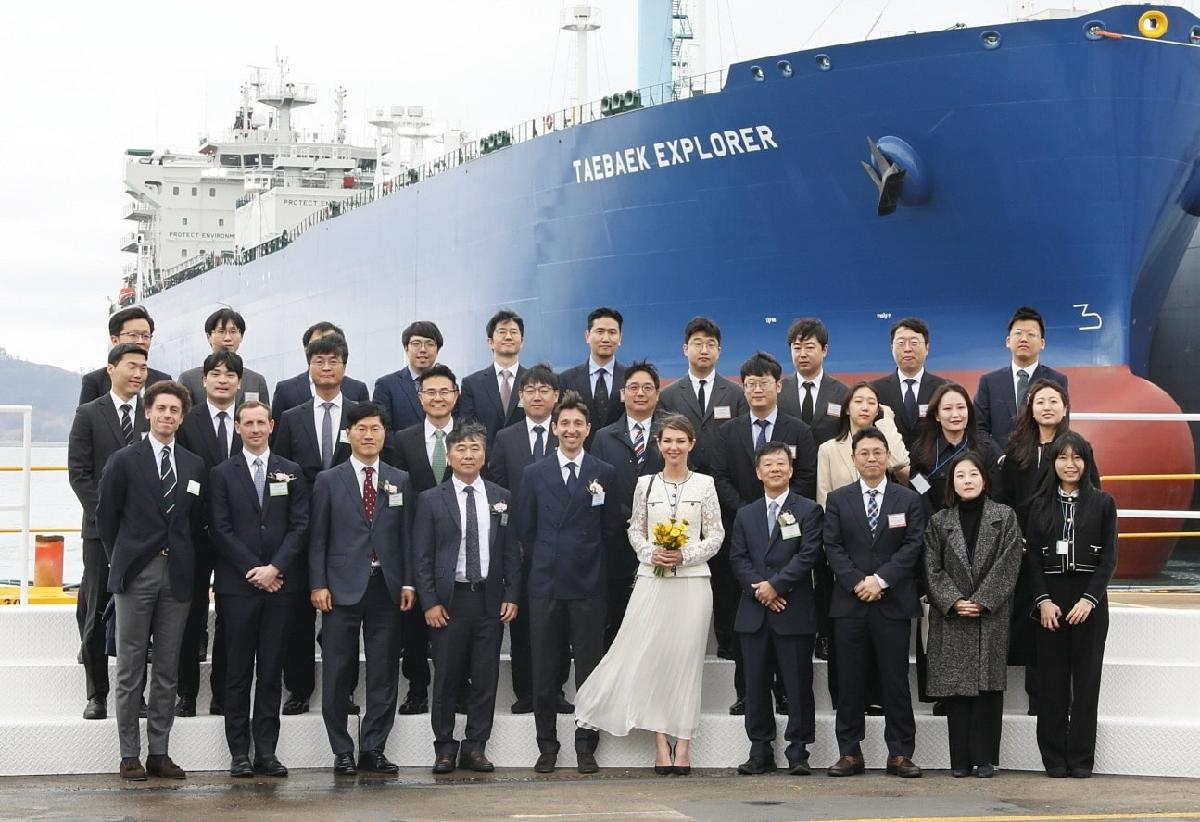Hyundai Glovis will introduce two super-large gas carriers (VLGCs) to start its gas transportation business in earnest.
Hyundai Glovis announced on the 27th that it held a naming ceremony for Taebaek Explorer at HD Hyundai Samho Shipyard in Yeongam-gun, Jeollanam-do on the 26th. The Taebaek Explorer is the first gas carrier to be owned by Hyundai Glovis. The Sovac Explorer, a twin ship with only a different name, is scheduled to be deployed by the middle of this year.
The Taebaek and Sobae Explorer are super-large gas carriers that can ship 86,000㎥ (8.6 millionℓ) of liquefied petroleum gas (LPG). This is the amount that can be consumed by domestic homes and industries for about 10 days based on last year's tally.
The ship introduced this time has a cargo hold made of special materials that can transport not only LPG but also ammonia. There are about 50 gas carriers that can ship ammonia from around the world, about 10% of the total fleet.
In addition, these ships are equipped with LPG dual fuel engines and storage generators. A storage generator is a device that generates power using the rotational force of a ship engine in operation, and has the effect of reducing fuel costs.
Hyundai Glovis will use these two gas carriers to transport LPG and ammonia from Trafigura, a global raw material trading company. Earlier, Hyundai Glovis signed a contract with Trafigura in September 2021 to transport LPG and ammonia to global consumers for up to 10 years. Trafigura is a global raw material trading company that handles oil, metals, minerals, gas and renewable energy, with sales of about 323 trillion won last year.
Kim Tae-woo, head of Hyundai Glovis' shipping business, said, "We hope that the two companies will become the best partners through this gas transportation business and wish the Taebaek Explorer a safe operation."
Hyundai Glovis plans to expand its position in the maritime transport market by adding two new gas carriers to 87 existing automobile carriers, 10 bulk carriers and 10 tankers.
"We will expand our gas carrier business to LNG maritime transportation in the future and achieve diversification of our maritime transportation business," a Hyundai Glovis official said. "We also plan to work hard to secure the capacity for maritime transportation of hydrogen, which is considered a future energy."

